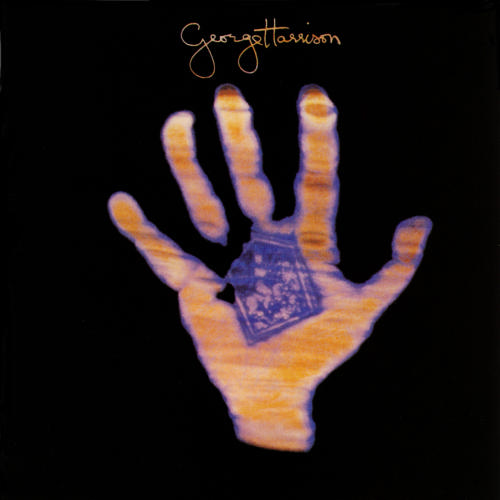
Living in the Material World (1973)

1. Give Me Love (Give Me Peace on Earth)
2. Sue Me, Sue You Blues
3. The Light That Had Lighted the World
4. Don't Let Me Wait Too Long
5. Who Can See It
6. Living in the Material World
7. The Lord Loves the One (That Loves
the Lord)
8. Be Here Now
9. Try Some Buy Some
10.The Day the World Gets 'Round
11.That is All
If All Things Must Pass was George Harrison's exhalation after years of creative suppression, then Living in the Material World was the soft, contemplative breath that followed. Overshadowed by its gargantuan predecessor and often dismissed as the start of a decline, it is, in fact, the most curiously underrated entry in Harrison’s catalogue—an album of quiet conviction and unexpected grace.
Spector is once again in tow, though the infamous Wall of Sound has been dismantled, or at the very least, soundproofed. The mix is gentler, less ornate. Gone are the suffocating layers of overdubs; in their place is clarity—of arrangement, of mood, and most crucially, of George himself. One can hear his voice, plaintive and unguarded, and his guitar—sharp in tone, subtle in intention—cutting through the spiritual fog.
Indeed, the spiritual is everywhere. This is Harrison at his most devotional, both lyrically and visually. The album cover alone offers a gentle nudge toward the Eastern, and inside, there’s no mistaking his continued immersion in Indian mysticism. For some, this tendency grated—Harrison was never more sincere, and perhaps never more out of step with rock’s preferred irony. But to tune into this album is to tune into George’s frequency, unwavering and unmoved by expectation.
The title track falters. Lyrically over-eager and musically undercooked, it feels more lecture than composition, a rare instance where Harrison’s sincerity outpaces his songwriting. But this is a brief misstep. Elsewhere, the songwriting is delicate, almost painfully earnest. He is not hiding behind studio trickery or grandiosity. This is Harrison, unadorned.
Sue Me, Sue You Blues strikes a different chord—acerbic and cynical, its lyrical bite drawn directly from the legal entanglements of the era, including his infamous plagiarism ruling over My Sweet Lord. It's an awkward fit but a necessary vent. Nicky Hopkins’ piano—a driving, almost joyous force—offsets the song’s bitterness, and indeed, Hopkins’ presence across the album is a quiet revelation. So consistently luminous is his playing that one might be forgiven for mistaking him for Billy Preston.
Try Some, Buy Some is the oddest of entries—strangely baroque, emotionally elusive, and yet oddly endearing. Initially it jars. Then it settles. Then it lingers. The Day the World Gets ‘Round, on the other hand, strains under its own earnestness and sounds alarmingly similar to Across the Universe—a case of thematic recycling, perhaps, but a less forgiving listener might call it an echo too far.
Yet these are not fatal flaws. The greater portion of the record is suffused with a calm sweetness that suits Harrison’s understated voice. He was never the most technically accomplished singer, and here, that works in his favour. The modesty in his tone, the humility in his delivery—it all lends a kind of warmth that is difficult to manufacture.
There is peace in this music, even when it unsettles. And in a career that would later veer toward inconsistency, Living in the Material World remains Harrison’s most focused, most human moment. You can hear him—not just the chords or the lyrics, but the man himself—still striving, still searching, still gentle.
Go back to the main page
Go To Next Review